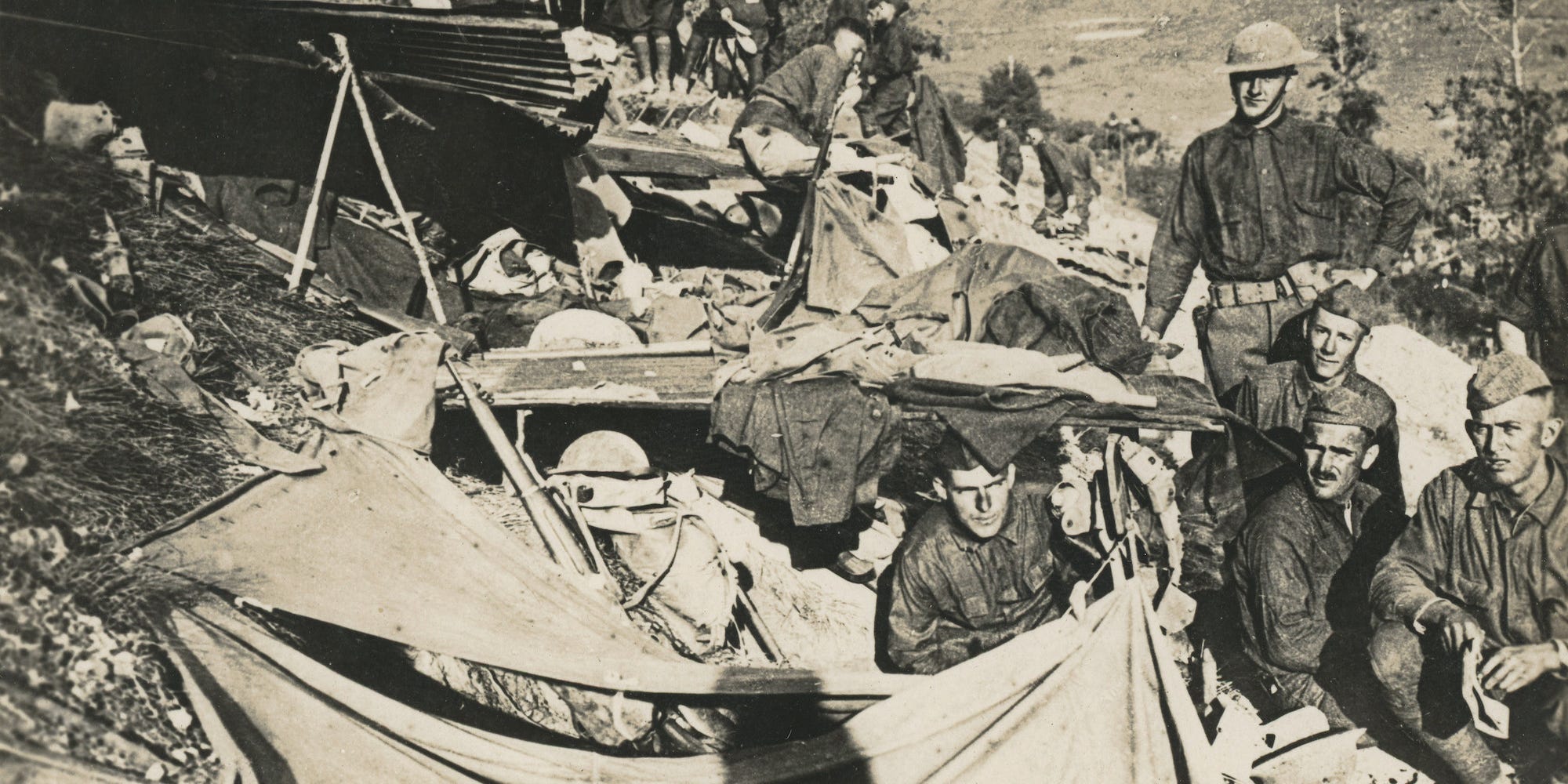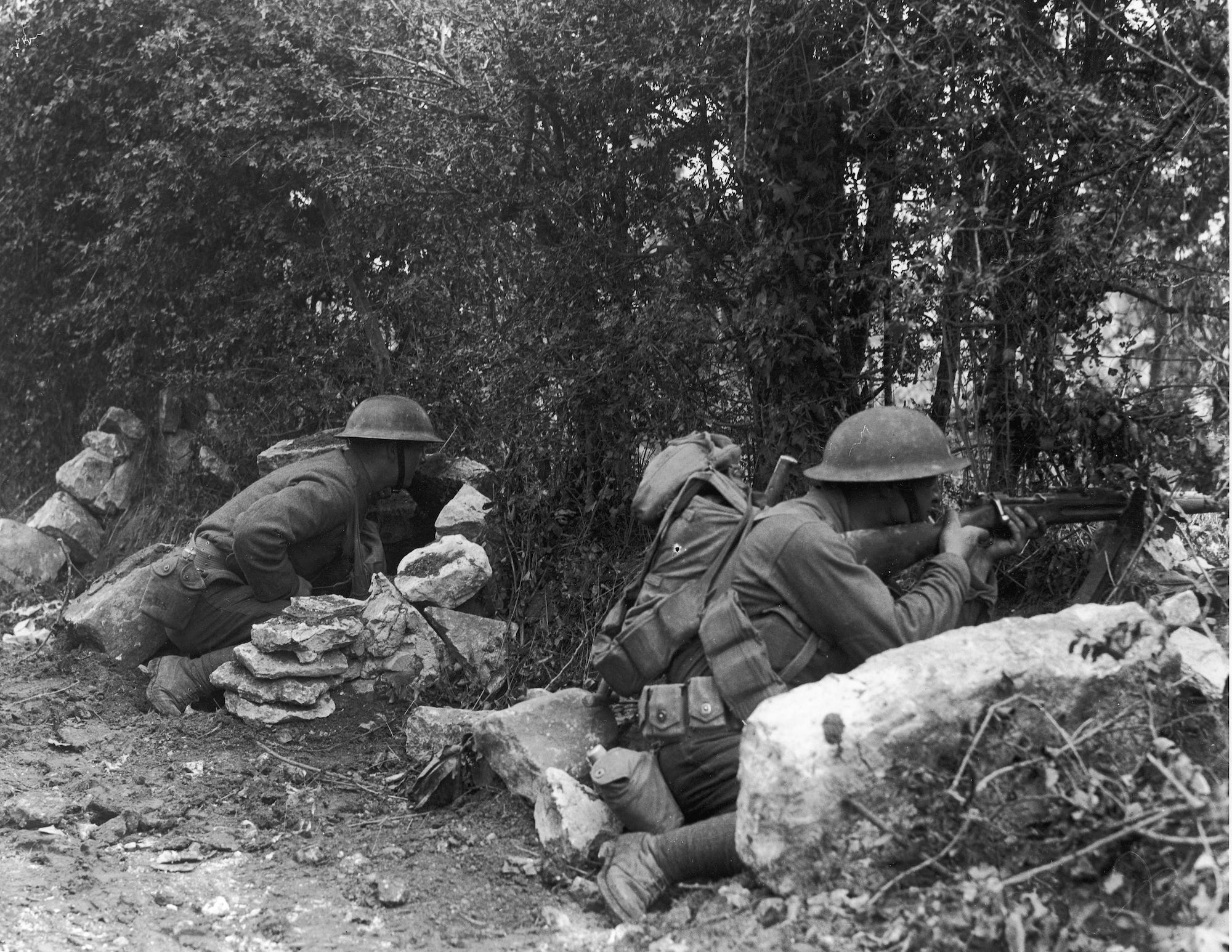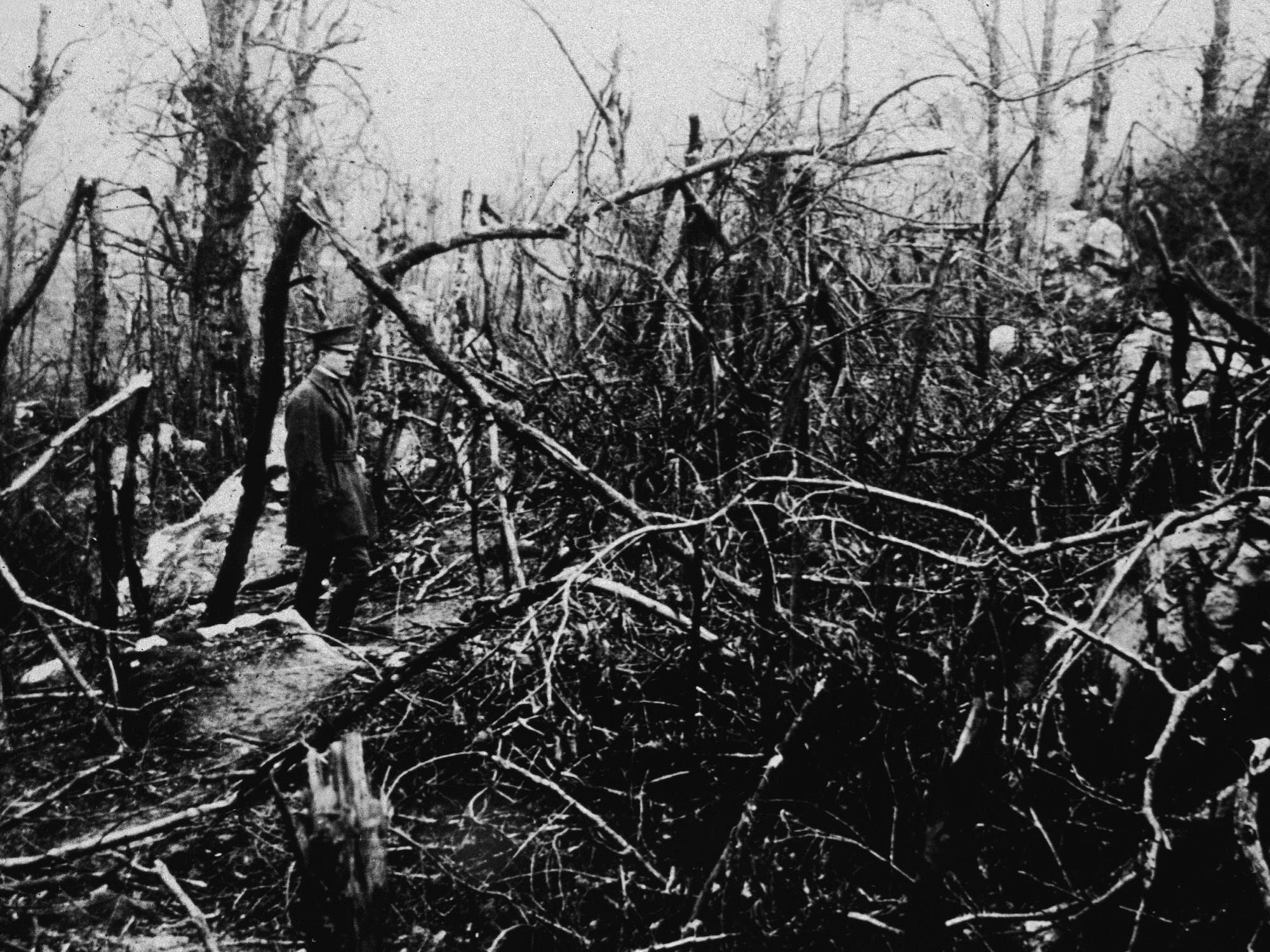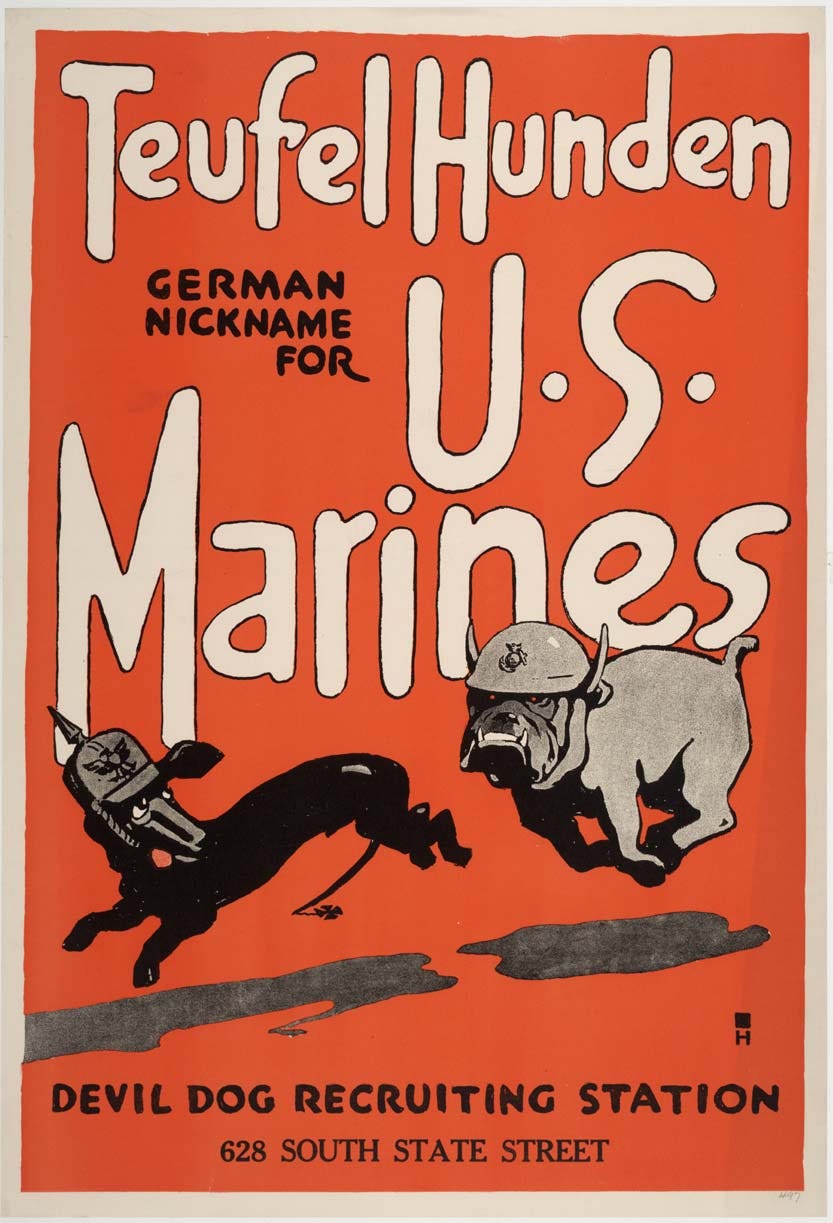
adoc-photos/Getty Images
- World War I began on June 28, 1914, but the US troops didn't join the fighting until late 1917.
- In mid-1918, US Marines saw action in Europe for the first time, facing the Germans at Belleau Wood.
- The battle had tremendous impact on the Corps and is still revered in Marine Corps history.
- See more stories on Insider's business page.
June is usually marked by commemorations of D-Day, when thousands of Allied soldiers landed in Normandy to begin liberating France from the Nazis.
But 26 years before D-Day, 9,500 US Marines fought what became one of the Corps' most defining battles, facing the Imperial German Army in fields and woods about 45 miles northeast of Paris.
The Battle of Belleau Wood in June 1918 was an attempt to halt a German offensive making its way through the battered French and British armies.
It was the first battle for the Marines in Europe and one that had tremendous impact on the Corps. A century later, it still holds a sacred place in Marine Corps history.
A badly needed relief force

Fotosearch/Getty Images
The US joined the war on the side of the Allies in April 1917. The French and British armies were exhausted after years of fighting, and the hundreds of thousands of fresh American soldiers were a badly needed relief force.
By the end of June that year, the first American Expeditionary Force soldiers had arrived in France. But the Americans were mostly newcomers to this new kind of warfare and did not join the trenches until October.
At first, American soldiers mostly augmented French and British defensive positions. On March 21, 1918, however, Germany - which had 50 more army divisions available after signing a separate peace treaty that ended Russia's involvement in the war - launched a push in France to defeat the British and French before US forces could fully deploy.
German successes meant the Americans were soon in the thick of the fighting. On May 28, they went on the offensive and retook lost territory at the Battle of Cantigny - the first major American battle of the war.
But the Germans were still advancing elsewhere. By June 1, they were locked in battle with French and American forces at the town of Château-Thierry and were moving toward Belleau Wood.
Desperate to stop the German advance, the Allies sent the US Army's 2nd Infantry Division, which included the 4th Marine Brigade, to hold the line.
The Marines' orders were clear: "No retirement will be thought of on any pretext whatsoever."
'Retreat, Hell!'

Pictorial Parade/Getty Images
Despite facing five German Army divisions, the Marines were determined to hold. When they reached the battlefield just outside Belleau Wood, retreating French soldiers advised them to retreat as well. Capt. Lloyd Williams responded with the now-famous line, "Retreat, Hell! We just got here!"
For five days, the Marines repelled German attacks on their lines outside the woods, due in large part to expert Marine marksmanship. On June 6, the Marines went on the offensive, charging German positions inside the woods.
The assault was brutal. German machine guns mowed down the Marines. It was here that acclaimed Marine Dan Daly, then a first sergeant, rallied his men for a charge by saying, "Come on, you sons of bitches, do you want to live forever?"
By the end of the day, the Marines at Belleau Wood had taken more casualties than in all previous battles in Marine Corps history. They were unable to dislodge the Germans from the woods but took the neighboring town of Bouresches after house-to-house fighting.
The battle then descended into a brutal slog, as the Marines forced their way through the woods. The Germans made numerous counterattacks, and assaults often descended into hand-to-hand fighting. German artillery also used poison gas to try to halt the Marine advance.
On June 11, Williams was killed by artillery fire after being wounded in an attack. He reportedly told the medics, "Don't bother with me. Take care of my good men."
Marine displays of courage were common at Belleau Wood. Gunnery Sgt. Ernest Janson received the Medal of Honor for single-handedly repelling 12 advancing Germans by charging and bayonetting two of them. Gunnery Sgt. Fred Stockton received the Medal of Honor posthumously after he gave a wounded comrade his own gas mask during a gas attack.
On June 26, after a 14-hour artillery barrage and a final assault, the Marines finally drove the Germans out and secured the woods.
A lasting legacy

US Marine Corps
Of the 1,811 Americans killed at the battle, about 1,062 were Marines. Around 3,615 of the roughly 7,000 American wounded were Marines as well. The Germans are believed to have had over 9,000 casualties.
The French government later renamed the woods "Bois de la Brigade de Marine," meaning "Wood of the Marine Brigade," and awarded the Marine units involved the Croix de Guerre and the right to wear a fourragère, a braided cord denoting distinguished conduct.
The battle was a baptism by fire for the Marine Corps, which now had a core cadre of officers and enlisted men with a full understanding of modern warfare.
They were what would be known as the "Old Breed" in the Corps. Five future commandants - John Lejeune, Clifton Cates, Lemuel Shepherd Jr., Wendell Neville, and Thomas Holcomb - saw action at Belleau Wood, as did a number of future high-ranking Marines who had important roles in World War II.
After the battle, the Marines were called "Devil Dogs," which German soldiers supposedly called them during the battle. The actual origin is disputed, but the nickname has stuck.
The toll at Belleau Wood was highest in Marine Corps history until the Battle of Tarawa in 1943 and then Iwo Jima in 1945, which remains the Corps' bloodiest battle.
